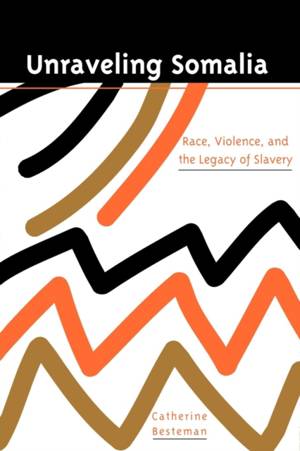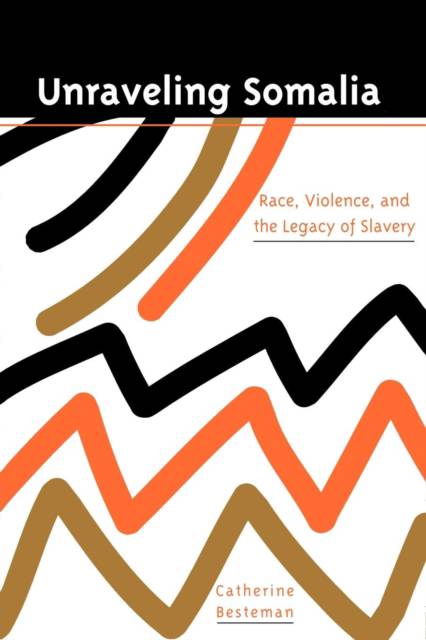
- Retrait gratuit dans votre magasin Club
- 7.000.000 titres dans notre catalogue
- Payer en toute sécurité
- Toujours un magasin près de chez vous
- Retrait gratuit dans votre magasin Club
- 7.000.0000 titres dans notre catalogue
- Payer en toute sécurité
- Toujours un magasin près de chez vous
Description
Unraveling Somalia Race, Class, and the Legacy of Slavery Catherine Besteman "Besteman's well-written and important book is a fine example of how careful scholarship can expose the realities behind widely held beliefs."--Choice In 1991 the Somali state collapsed. Once heralded as the only true nation-state in Africa, the Somalia of the 1990s suffered brutal internecine warfare. At the same time a politically created famine caused the deaths of a half a million people and the flight of a million refugees. During the civil war, scholarly and popular analyses explained Somalia's disintegration as the result of ancestral hatreds played out in warfare between various clans and subclans. In Unraveling Somalia, Catherine Besteman challenges this view and argues that the actual pattern of violence--inflicted disproportionately on rural southerners--contradicts the prevailing model of ethnic homogeneity and clan opposition. She contends that the dissolution of the Somali nation-state can be understood only by recognizing that over the past century and a half there emerged in Somalia a social order based on principles other than simple clan organization--a social order deeply stratified on the basis of race, status, class, region, and language. Catherine Besteman is Associate Professor of Anthropology at Colby College. The Ethnography of Political Violence 1999 296 pages 6 x 9 11 illus. ISBN 978-0-8122-1688-2 Paper $27.50s £18.00 World Rights Anthropology, History, African-American/African Studies Short copy: "Besteman's well-written and important book is a fine example of how careful scholarship can expose the realities behind widely held beliefs."--Choice
Spécifications
Parties prenantes
- Auteur(s) :
- Editeur:
Contenu
- Nombre de pages :
- 296
- Langue:
- Anglais
- Collection :
Caractéristiques
- EAN:
- 9780812216882
- Date de parution :
- 07-05-99
- Format:
- Livre broché
- Format numérique:
- Trade paperback (VS)
- Dimensions :
- 150 mm x 226 mm
- Poids :
- 453 g

Les avis
Nous publions uniquement les avis qui respectent les conditions requises. Consultez nos conditions pour les avis.






